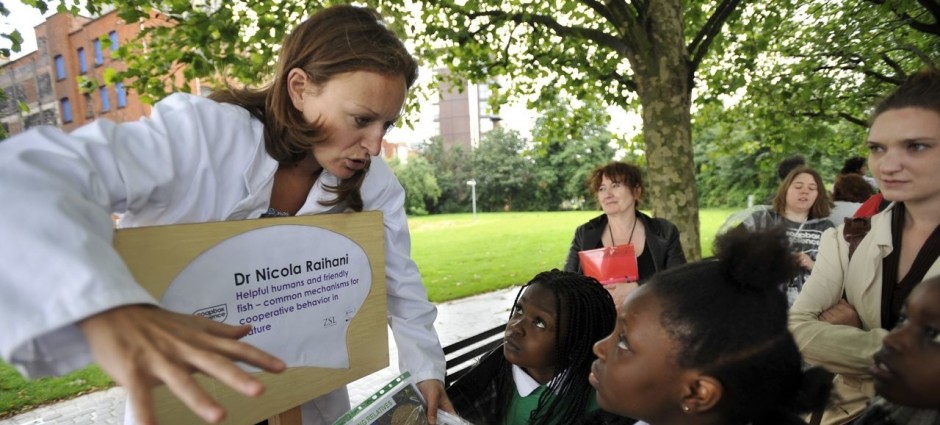 Siobhan Gardiner is a PhD student at Cranfield University. Although she is currently on placement as an ice cream scientist with the likes of Walls and Ben & Jerry’s – Siobhan’s background and passion is in plant sciences, and she hopes to inspire others to explore the amazing world of plants and everything they do for us. Here, Siobhan lets us in on some advice in STEM careers based on her experience as an early career scientist. Meet Siobhan on her Soapbox at the Milton Keynes event on 9 July, where she tells us about the importance of plant science in helping us face the great challenges facing society – from food security to climate change.
Siobhan Gardiner is a PhD student at Cranfield University. Although she is currently on placement as an ice cream scientist with the likes of Walls and Ben & Jerry’s – Siobhan’s background and passion is in plant sciences, and she hopes to inspire others to explore the amazing world of plants and everything they do for us. Here, Siobhan lets us in on some advice in STEM careers based on her experience as an early career scientist. Meet Siobhan on her Soapbox at the Milton Keynes event on 9 July, where she tells us about the importance of plant science in helping us face the great challenges facing society – from food security to climate change.
SS: How did you get to your current position?
SG: I am sponsored by the Biotechnology & Biosciences Research Council (BBSRC) and Unilever who make foods, personal care and homecare products. It’s an industrial collaboration which means I have the fantastic opportunity to do placements alongside the PhD project – and as such I have worked in flavour expertise in the Netherlands, and the ice cream global design in the UK. My PhD research has also taken me to Asia, and I’m heading to Australia later this year!
SS: What, or who, inspired you to get a career in science?
SG: When I was studying economics at A-Level, we did case studies on two big companies that work in FMCGs (fast-moving consumer goods) – Procter & Gamble and Unilever. It was the first time I really understood how scientific research & development drives the production of things I used every day – from the food I ate to the make-up I wore. From the start I thought this was very exciting, and little did I know that in the years ahead I would go on to work with both of these companies.
SS: What is the most fascinating aspect of your research/work?
SG: I love turning my research into a story that everyone can understand. As scientists, we are experts in jargon, but the key to making an impact with our research is to communicate it in a way that is accessible to all. To quote Professor Anne Glover (ex-EU chief scientific advisor) – research not communicated is research not done.
SS: What attracted you to Soapbox Science in the first place?
SG: Since starting my PhD three years ago, I have been building my repertoire in science outreach and public engagement – however Soapbox Science is a platform of science communication that I have never come across before. It’s not a practiced lecture at a school or university. Instead, there is a large element of improvisation and showmanship to engage the public who may not have even known the event was going on that day.
SS: Sum up in one word your expectations for the day – excitement? Fear? Thrill? Anticipation?
SG: Thrill ! (and fear)
SS: If you could change one thing about the scientific culture right now, what would it be?
SG: There is a transition in scientific culture going on at the moment, from the traditional academic route in STEM careers – to the diverse nature of the rapidly expanding careers-base in other sectors like industry, science communication and science policy. I’d like to see better advisory services provided by schools and universities (at both undergraduate AND post-graduate level) that reflected these changes.
SS: What would be your top recommendation to a female PhD student considering pursuing a career in academia?
SG: Make a comprehensive list of your technical skills, research output, transferable skills and aspects of your work that you have found most rewarding. Then make sure you have explored other options in STEM careers too, by comparing this list to these other types of job sectors. Talk to senior colleagues and professionals in your network. Perhaps you will feel that you ARE best-suited to academia, perhaps you won’t – regardless – please don’t think that once you choose, that you will be restricted to that one sector for the rest of your career.
